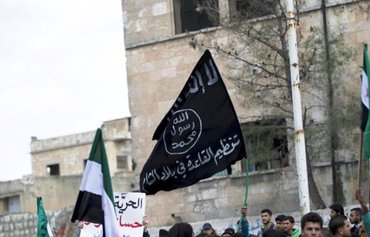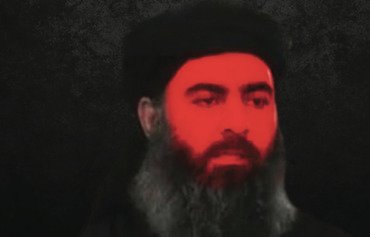Egypt's Dar al-Ifta fatwa observatory has warned that as the "Islamic State of Iraq and the Levant" (ISIL) comes under international fire in Iraq, Syria and elsewhere, its fighters will seek refuge under the auspices of al-Qaeda.
This is a realistic concern, terror group experts told Al-Mashareq, given that al-Qaeda is the wellspring of global terrorist ideology and the mother ship of numerous terrorist groups, particularly those operating in Syria and Iraq.
In a November 1st statement, Dar al-Ifta's fatwa observatory warned that the defeat of ISIL in Iraq and Syria "brings al-Qaeda to the fore again".
"ISIL’s defeat and withdrawal from Iraq as a result of the successive blows dealt to it by the international coalition and the decline in its combat, financial and media capabilities and its ability to mobilise and recruit, all spell the end of the 'ISIL caliphate project' ," the observatory said.
The defeat and failure of ISIL's "ideological" project could drive many extremist and violent elements to turn to al-Qaeda, it said.
"Dar al-Ifta’s warning of the danger of ISIL elements turning to al-Qaeda is a realistic warning that must spur action to avoid that very dangerous possibility," said political researcher Abdel Nabi Bakkar, who is a professor at Al-Azhar University's faculty of sharia and law.
Al-Qaeda’s ideology is the foundation from which most extremist groups emanated, Bakkar said.
"It is clear that jihadist groups around the world now move in the same orbit, consisting of terrorist groups that are known to all," he told Al-Mashareq. "So the exertion of pressure on one of these groups, or getting close to eliminating it, or even just besieging it, will cause jihadist elements to look for another haven that is similar or is representative of their terrorist beliefs."
The battles in Syria and Iraq clearly indicates "an international desire to wipe out terrorist elements completely", he said. "But it is inevitable there will be individual or collective cases of escape, as well as sleeper cells and supporters [that remain] scattered around the world."
After the fall of ISIL
"The nascence of ISIL, first in Iraq and then in Syria, was accompanied by much controversy over the group’s direction," said reformed jihadist Nabil Naeem, a founding member of the Islamic Jihad in Egypt who has renounced extremism.
There were concerns about its ability to hold on to the ground it seized in order to form a "caliphate", he told Al-Mashareq, "as well as the excessive violence directed at everyone without exception".
"Therefore, the fall of this ['caliphate' ideology] with the fall of ISIL will undoubtedly mean a return to the first option, namely the al-Qaeda terrorist group," he said.
Al-Qaeda is still keen to maintain "covert presence", he said, and therefore, the reverse migration from ISIL to al-Qaeda is a possibility.
This is especially likely as "the core of ISIL’s membership base came from the womb of al-Qaeda, which was weakened in recent years by the defection of a large number of its elements and emirs around the world to ISIL ", he noted.
Uprooting terrorist ideology
Defeating ISIL is "necessary but not sufficient", as it needs to be accompanied by efforts to prevent those who were originally al-Qaeda members from returning to their roots, said Maj. Gen. Yahya Mohammed Ali, a retired military officer and terror group expert.
It is important to take this into account in battling ISIL in Syria, Iraq and around the world, he told Al-Mashareq, "because the current efforts to eliminate the ISIL threat would be incomplete if al-Qaeda cells are not included in this war".
"The ideology is the same, and so are the takfiri fatwas," he added, noting that "the ideological basis is Salafism, which is espoused by ISIL and al-Qaeda extremists alike".
Therefore, it will be important not to overlook the spread of terrorist ideology, he said.

![An 'Islamic State of Iraq and the Levant' element in the group's Syrian stronghold of al-Raqa stands next to a banner that reads ‘Wilayat al-Raqa’. [Photo courtesy of al-Raqa Is Being Slaughtered Silently]](/cnmi_di/images/2017/01/02/6903-iraq-raqa-isil-600_384.jpg)






